When Spurs were humbled in the Highlands
- Published
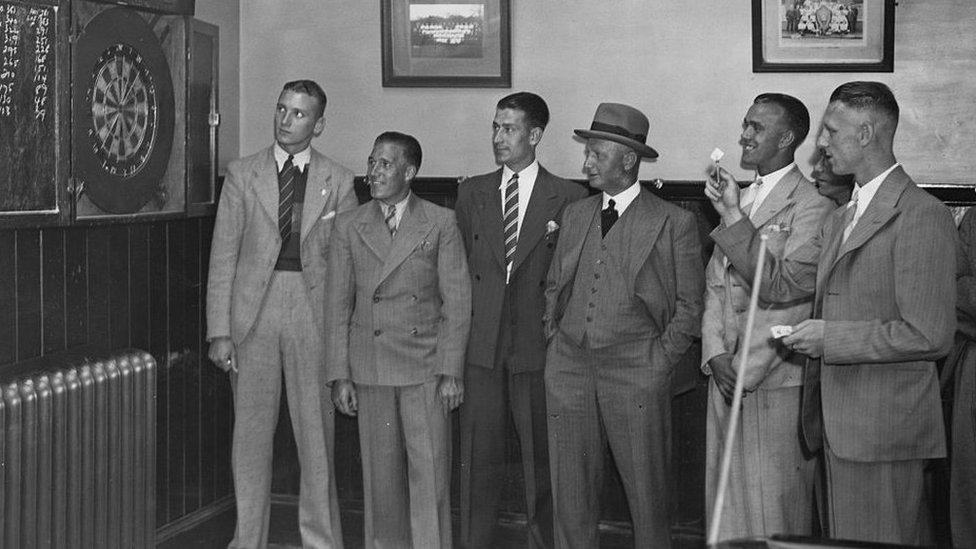
Peter McWilliam, centre, and his Spurs players in the 1930s.
Peter McWilliam was the Scottish manager who masterminded Tottenham Hotspur's 1921 FA Cup triumph only to be humbled in his own backyard when he brought his team of stars home to the Highlands.
McWilliam was born on Argyle Street in Inverness and his playing career began at his hometown club Thistle, before moving to Newcastle United and the Scottish national team.
But Peter the Great, as he was named by some, sustained an injury that brought his playing days to a premature end and he was promptly installed as manager of Spurs in 1912.
It was here he assembled a team modelled on a possession-based style that had originated in Scotland.
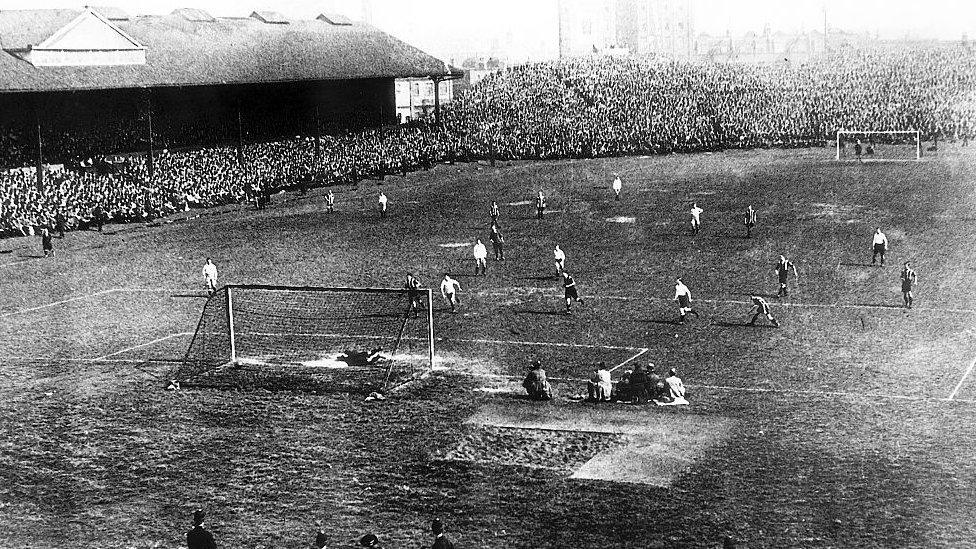
Tottenham had defeated Wolves in the 1921 FA Cup Final with the media claiming that "The superiority of the Spurs was never in doubt"
Tottenham's trip to the Highlands in September 1921 coincided with an emergency meeting of the UK government cabinet in Inverness following Ireland's rejection of the king.
It was the first ever UK government cabinet meeting to be held outside of London, external, and took place in Inverness due to prominent figures being in the Highlands at the time.
Prime Minister David Lloyd George broke off from a holiday in Gairloch to call his meeting in Inverness.
His deputy was also in the Highlands and King George V was at Moy, just south of Inverness.
Winston Churchill, then secretary of state for the colonies, also attended the meeting. It led to the drawing up of the Inverness Formula which guided later discussions on the treaty creating the Irish Free State.
But Spurs was the hottest ticket in town and not even Lloyd George and Churchill could compete.
McWilliam's Spurs team - which included Inverness-born defender Bob MacDonald and a clutch of internationalists were to play against a side made up of players from Highland League clubs Caledonian and Thistle.
The Telford Street home of Caledonian was full to bursting well before Spurs made their way down from the Caledonian Hotel.
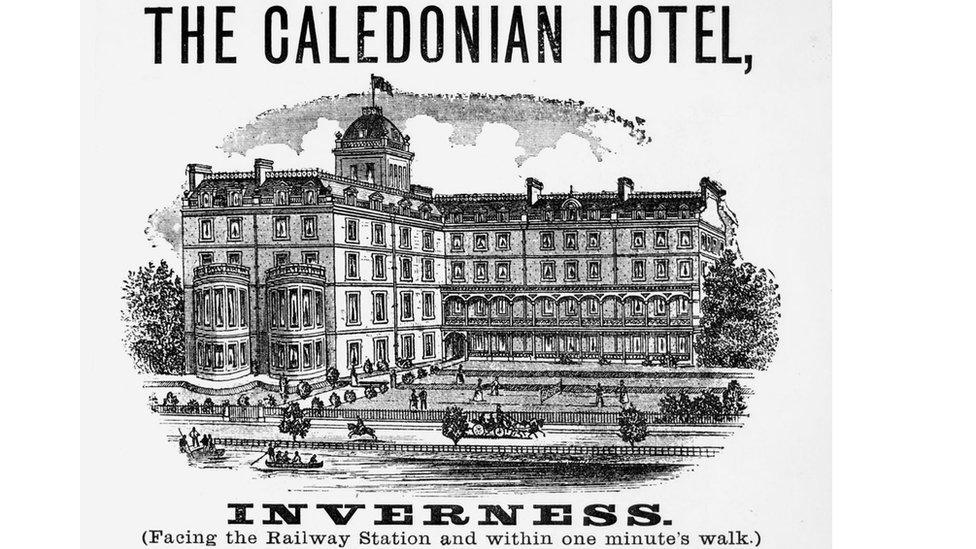
Spurs took up residence in the old Caledonian Hotel in the heart of Inverness.
Local newspaper, The Inverness Courier, had labelled Spurs as a "great combination of brilliant artistes, true sportsmen who play the game as it should be played in a gentlemanly spirit, combined with science".
It admitted that it was "perhaps unreasonable to expect a combination of the Caley and Thistle to beat this distinguished band of players".
The visitors duly grabbed an early lead as they threatened to overwhelm the Inverness side.
Slowly but surely, however, the Highlanders found their feet and began to play a bit of football of their own, in a style which was said to "surprise" Tottenham. A particularly fine break led to an equaliser before the home side went ahead.
Back came Spurs to level but confidence was now flowing though the Highlanders - with them scoring again three times.
Friendly or not, this was in danger of getting embarrassing. Despite their best efforts, a flustered Tottenham struggled to turn the tide, a missed penalty adding to their woes.
When the full-time whistle was blown, nobody could quite believe the score - Caledonian and Thistle Select 6 Tottenham Hotspur 3.
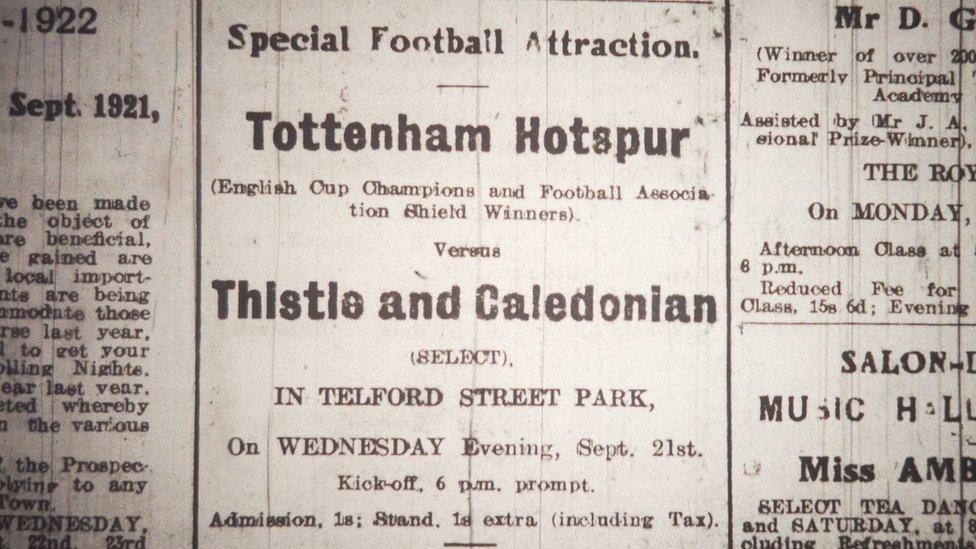
The match in September 1921 attracted a record crowd to Telford Street Park in Inverness.
The sides retreated to the Caledonian Hotel where the Inverness side were warmly congratulated by the visitors, McWilliam himself proclaiming "there was little wrong with Highland football". Perhaps Peter the Great was quietly rather proud.
Spurs would enjoy trips to Culloden, Cawdor Castle and Strathglass before returning south where they would have another fine season, ending up just behind Liverpool in the race for the English title.
Perhaps that - and the fact that Caledonian and Thistle were not even the best sides in Inverness that season - does indeed reflect the strength of Highland football at the time.
If it was an example of what the two clubs might do as a combined force, well nobody was quite willing to say.
Caley and Thistle returned to being rivals for another 70 years until they finally came together permanently in a merger in 1994 as Inverness Caledonian Thistle, but only after a "diplomatic dispute" that would have tested even Lloyd George and Churchill with fans at both clubs angry at the move and even accusations of vote-rigging.
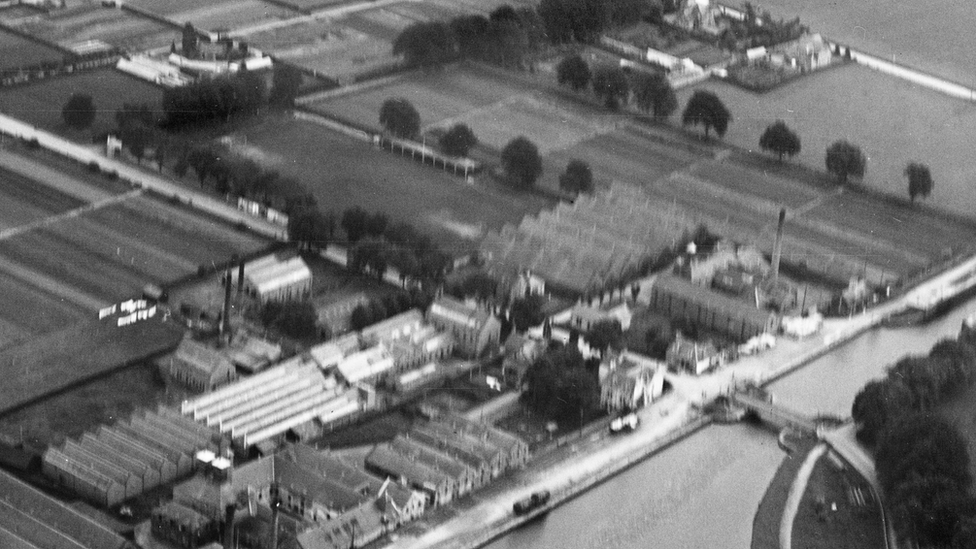
A rural Telford Street in the 1920s. The former home of Caledonian is now the site of a retail park.
McWilliam would ultimately become the longest serving Tottenham manager ever with two spells in charge. He died in 1951 but is now largely forgotten.
Some believe McWilliam has a legacy worth remembering. Arthur Rowe, Bill Nicholson and Vic Buckingham were among those who played under the Inverness man and who were influenced by his style.
Rowe and Nicholson would both lead Spurs to the title. Buckingham would manage Ajax and Barcelona and contribute to establishing a philosophy that would help both clubs on their journey to the top.
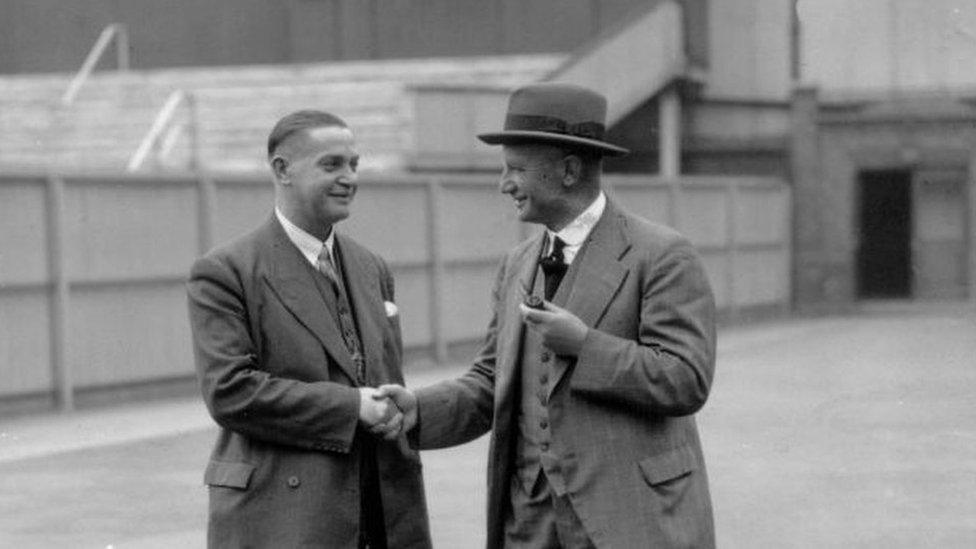
McWilliam, right, on his return to Tottenham in 1938. Some believe the Inverness man is worthy of greater recognition for his contribution to football.
"Many have won more trophies, but few have had quite the lasting impact and legacy McWilliam can lay claim to," says journalist and author Alfie Potts Harmer, who has researched McWilliam's story.
"He won an FA Cup and took a London club into uncharted territory in the league, all whilst playing an innovative and new style of play for the English game.
"In the form of Buckingham, Rowe and Nicholson, he coached three of the most important figures in the history of the game, and embedded in them a style that would prove so successful for all three.
"When one steps back and takes a look at the development of the British game and the sport in general, Peter McWilliam stands as a giant of that story."